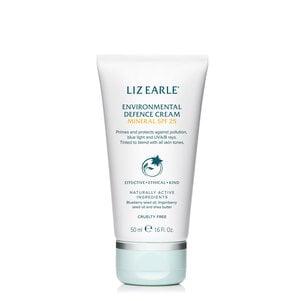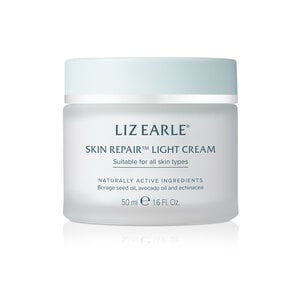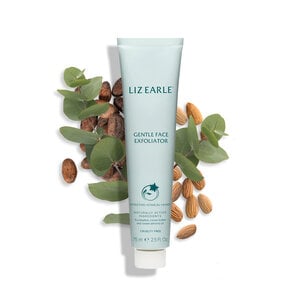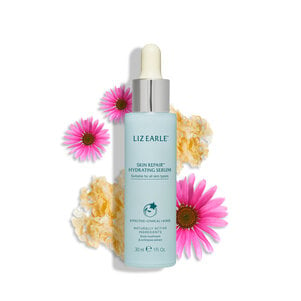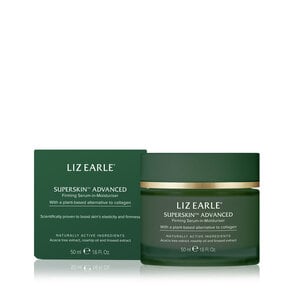
How your skin ages through the years
May 17, 2024
3 min read
As the body's largest organ, our skin is an extraordinary protector, adapting and changing throughout our lives and understanding how our skin ages can help us better care for it at every stage. This journey of transformation is influenced by a combination of genetics, environmental factors, and lifestyle choices. In this article, we'll help you understand the fascinating process of skin aging, decade by decade, and look into maintaining a healthy-looking, vibrant complexion through the years.
Understanding intrinsic and extrinsic skin ageing
Before delving into the journey of skin ageing, it's essential to grasp the difference between intrinsic and extrinsic factors. Intrinsic ageing, also termed ‘chronological ageing’, refers to the natural ageing process that occurs over time, independent of external influences.
On the other hand, extrinsic ageing, often referred to as ‘photo-ageing’, is driven by external factors such as sun exposure, lifestyle factors, and environmental pollutants. While intrinsic ageing is something everyone will experience, extrinsic ageing accelerates the ageing process, leading to visible signs such as wrinkles, lines, and pigmentation.
Skin renewal and ageing
There are many complexities when it comes to skin ageing, so it's crucial to consider the process of skin renewal – and how it impacts the ageing trajectory. Skin renewal and cell turnover slow down within the epidermis as we age.
The stem cells in the basal layer (at the bottom of the epidermis) gradually cease producing daughter cells, resulting in a slower rate of skin regeneration. Simultaneously, the dead skin cells at the skin surface (Stratum Corneum) shed more slowly, further impeding the skin's renewal process. Consequently, the living epidermal layer thins, while the Stratum Corneum thickens, making it less lipid-rich and effective as a barrier.
Additionally, the overall thickness of the epidermis decreases, contributing to skin that appears thinner. The loss of binding proteins that anchor the epidermis and dermis together further exacerbates this fragility, making the skin stiffer, more easily damaged, and prone to visible signs of ageing.
Your skin throughout the years
Skin in your 20s
Most people in their 20s won't have significant skin ageing concerns, as the surface of their skin typically shows no visible signs of ageing. However, environmental, hormonal, and dietary changes, alongside sun exposure, can impact skin characteristics. Maintaining a gentle and effective daily skincare routine is crucial during this stage to help offset potential future ageing concerns.
SPF should be used at all ages to help protect the skin from the visible signs of sun damage.
Our Environmental Defence Cream Mineral SPF 25 delivers broad spectrum protection from UVA and UVB rays, bluelight and pollution while enhancing the skin’s natural defence barrier – and priming it for the day ahead. Remember, a good routine that involves an SPF, cleanser and moisturiser is key! Our iconic Cleanse & Polish™ Hot Cloth Cleanser, rich in nourishing, impurity-dissolving cocoa butter – plus antioxidant-rich chamomile and rosemary – pairs perfectly with our Skin Repair™ Light Cream moisturiser, which softens to leave skin feeling comfortable, smooth and supple.


Skin in your 30s
As we enter our 30s, the first signs of visible ageing may start to appear with the emergence of visible fine lines and wrinkles. Concerns about reducing the appearance of these signs can become more prevalent. The introduction of light facial exfoliation to your routine could be considered, such as our Gentle Face Exfoliator which gently buffs away dead skin and impurities to help reveal a radiant-looking complexion.
Skin in your 40s
In our 40s, dryness on the skin's surface may become more pronounced, leading to the feeling of increased sensitivity and the appearance of redness. Loss of elasticity and thinning of the skin contribute to a less youthful appearance, while the appearance of pigmentation issues such as dark spots or uneven skin tone may arise.
Gentle weekly exfoliation can be introduced your routine, alongside nourishing serums – like our Skin Repair™ Hydrating Serum, powered by ingredients expertly selected for their efficacy, including plant-based hyaluronic acid and snow mushroom to leave skin feeling instantly refreshed and deeply replenished.


Skin in your 50s
Entering the 50s, the onset of perimenopause and menopause can start to significantly impact the skin. Changes such as blemishes or the feeling of increased dryness and discomfort may occur. Understanding these changes and restoring balance to the skin becomes a priority. Most people will begin to show visible signs of pigmentation and wrinkles, particularly around the eyes (crow’s feet).
More intensive, nourishing additions can be included in your routine, such as replacing your moisturiser or including retinol-style products. Our Superskin™ Advanced Firming Serum-in-Moisturiser combines a serum with a moisturiser, for an extra boost of moisture that helps to instantly hydrate skin. Powered by acacia tree extract (a plant-based alternative to collagen) and combined with rosehip oil, it helps skin feel more elastic and look more sculpted.
The journey of skin ageing is multifaceted, influenced by a combination of intrinsic and extrinsic factors, as well as the dynamics of skin renewal. By understanding the unique challenges faced at each stage of life and adopting appropriate skincare practices, individuals can embrace the ageing process with confidence, ensuring that their skin remains looking healthy and radiant for years to come.
